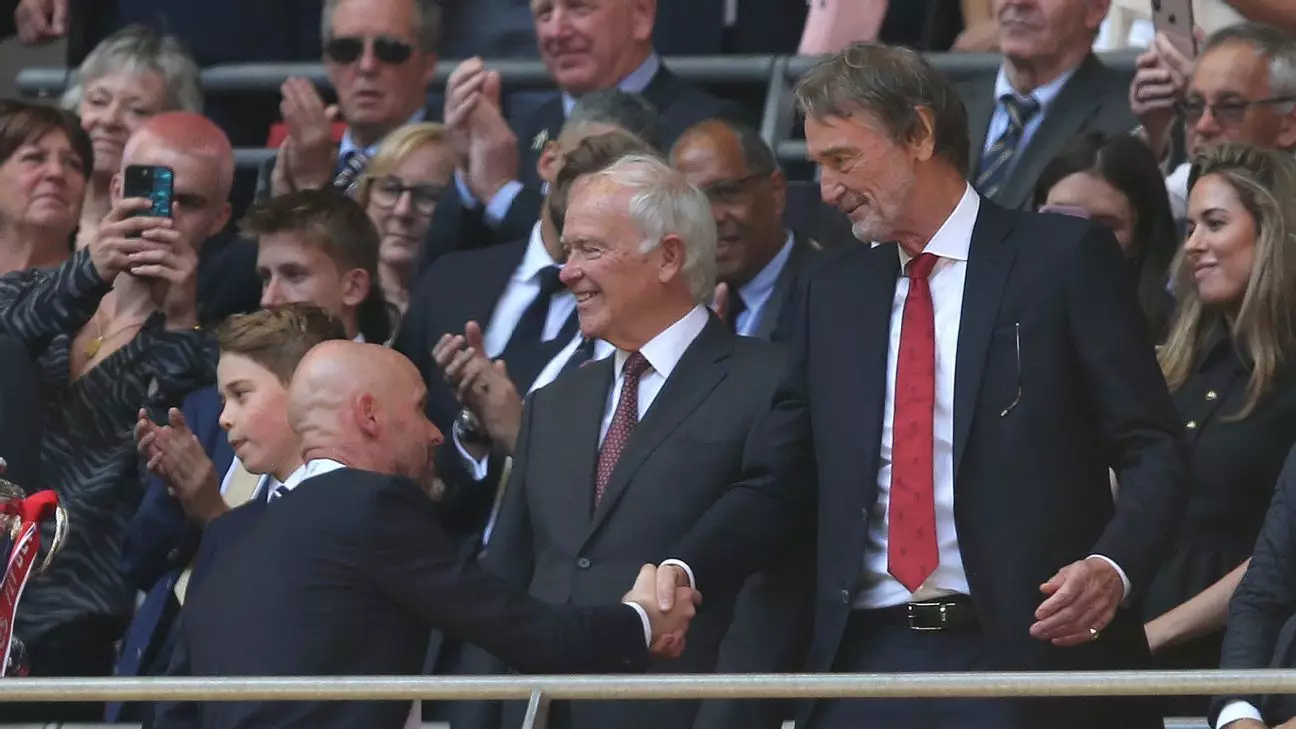In recent statements, Sir Jim Ratcliffe, co-owner of Manchester United, has created uncertainty surrounding the future of manager Erik ten Hag. Having presided over a disappointing stretch of four winless games, Ten Hag finds himself under considerable scrutiny. As the club prepares for an essential clash against Aston Villa, Ratcliffe’s comments raise more questions than answers. When asked if he still believed in Ten Hag’s capability to lead the team, Ratcliffe deflected, stating that the ultimate decision regarding Ten Hag’s fate lies beyond his authority. This reluctance to openly support the manager demonstrates the complicated and often precarious relationship between ownership and managerial roles in football.
Since acquiring a substantial 27.7% stake in Manchester United earlier this year, Ratcliffe has pushed for a revamped organizational structure. The introduction of key personnel, including CEO Omar Berrada, sporting director Dan Ashworth, and technical director Jason Wilcox, has been pivotal in shaping the club’s future. However, their presence has not yet translated into a coherent philosophy or strategy, partly due to their recent arrivals in pivotal roles. Ratcliffe pointedly mentioned that the current management team has only been in place for a limited period, suggesting that they need time to evaluate the situation and make informed decisions about Ten Hag’s future.
Managerial positions in top football clubs are notoriously volatile, particularly in successful institutions like Manchester United that harbor talent and passionate fanbases. Ten Hag’s contract extension in the summer was an indicator of faith in his ability to steer the club back to its former glory. Yet, the swift arrival of new heads in the management team has undoubtedly complicated matters. The lack of continuity in leadership and strategic vision has been a recurring theme in the club’s struggles over recent years. The new executives’ hesitance to commit to Ten Hag suggests a broader uncertainty regarding the club’s trajectory.
As Manchester United faces critical matches ahead, it is essential for both management and fans to consider the path forward. The absence of clear support for Ten Hag not only affects morale within the team but also potentially undermines efforts to establish a winning culture. With Ratcliffe emphasizing the need for sensible decision-making within the management team, it is crucial they work collaboratively to define the club’s philosophy going forward. The fans, who are eager for a return to successful times, will be looking for transparency and clear communication from the owners and executives following the present turbulence.
While Ratcliffe’s comments may reflect a cautious approach, they also highlight the pressing need for Manchester United to establish stability at both management and coaching levels. The club’s ascent back to prominence is contingent upon unified direction and the cultivation of trust among all stakeholders. As the situation unfolds, Ten Hag’s future remains a point of intense speculation, with every match becoming increasingly significant in determining the path that lies ahead for Manchester United.


Leave a Reply